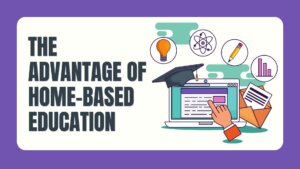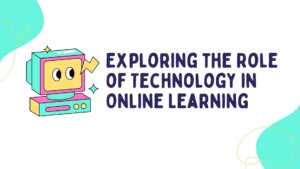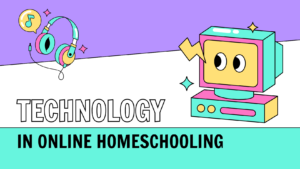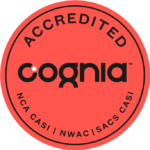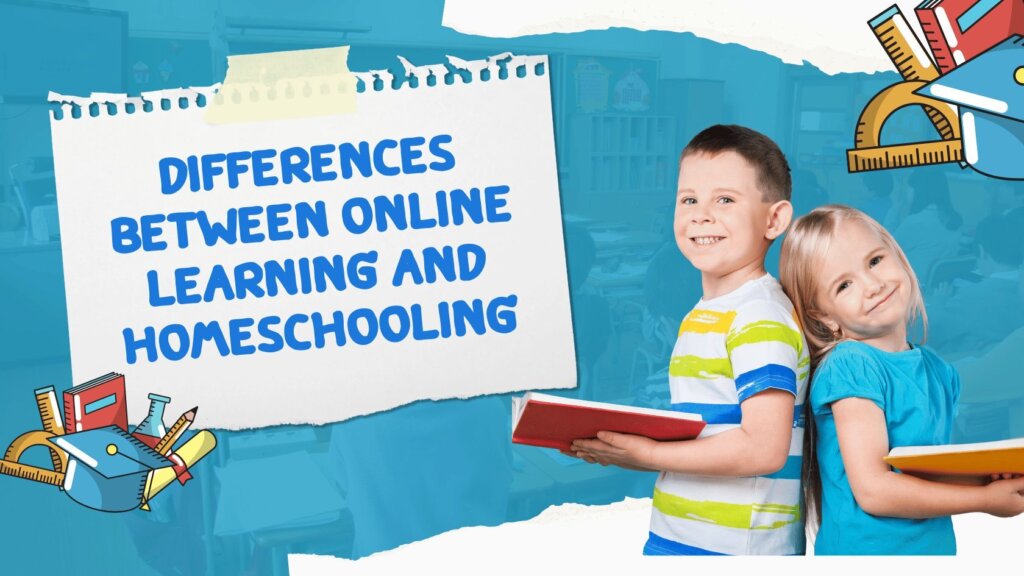
In this digital age, the education landscape continually evolves, offering learners more diverse options. Two prevalent alternatives gaining traction are online learning and homeschooling.
While both deviate from traditional brick-and-mortar schooling, they possess distinct characteristics and approaches. So, let’s delve into the nuances that set them apart.
Table of Contents
Understanding Online Learning
What is Online Learning?
Online learning, also known as e-learning or distance education, encompasses educational experiences facilitated over the Internet.
It leverages digital tools and platforms to deliver instruction remotely, allowing students to learn virtually anywhere with an internet connection.
Flexibility and Accessibility
One of the standout features of online learning is its flexibility.
Learners have the autonomy to set their schedules, enabling them to balance academics with other commitments such as work or extracurricular activities.
Additionally, online learning transcends geographical barriers, making education accessible to individuals residing in remote areas or those with mobility constraints.
Interactive Learning Environment
Contrary to the misconception that online learning equates to passive engagement, platforms like Ideal School offer dynamic and interactive experiences.
Students can actively participate in their learning journey through multimedia resources, discussion forums, and live virtual sessions, fostering collaboration and critical thinking skills. Rest assured that parents will see the benefits.
Exploring Homeschooling
Defining Homeschooling
Homeschooling involves parents or guardians acting as educators to provide personalized instruction to their children within the confines of their home environment.
It offers a departure from the conventional classroom setting, allowing for tailored curricula and individualized pacing.
Ideal School developed a complete guide to homeschooling your child with support from Ideal School’s accreditation and curricula.
Customized Learning
One of the primary appeals of homeschooling is the ability to tailor instruction to suit each child’s unique learning styles and interests.
Whether incorporating hands-on activities, delving deeper into specific subjects, or accommodating special learning needs, homeschooling offers unparalleled customization.
Family-Centered Approach
Homeschooling fosters strong family bonds by integrating learning into everyday life.
It provides opportunities for parents to actively engage in their child’s education actively, fostering a supportive and nurturing environment conducive to academic growth and holistic development.
Homeschool Supplement
Be able to interact with our teachers and experience our live classes.
Book A Demo Class With Us
Choose 1 from our 5 core subject areas.
Distinguishing Between Online Learning and Homeschooling
Structural Differences
While both online learning and homeschooling diverge from traditional schooling, they vary significantly in their structural frameworks.
Online learning typically follows a structured curriculum provided by an accredited institution, with students progressing through predetermined lessons and assessments.
In contrast, homeschooling offers greater flexibility, allowing families to design their curriculum or follow established programs tailored to their preferences.
Ideal School has integrated the two learning styles to offer even more flexibility for families with full-day, asynchronous, and mixed classes.
Educational Environment
Another distinguishing factor is the educational environment.
Online learning often involves virtual classrooms and peer interactions facilitated by teachers or instructors.
In contrast, homeschooling primarily occurs within the home environment, although it may incorporate community resources, co-op classes, or extracurricular activities to supplement learning.
Degree of Autonomy
While online learning and homeschooling afford learners greater autonomy than traditional schooling, the degree of independence varies.
Online learning typically involves adherence to set schedules and deadlines, albeit with more flexibility than traditional schooling.
On the other hand, homeschooling offers the highest degree of autonomy, with families having complete control over curriculum, pacing, and instructional methods.
Bridging the Gap Between Online Learning and Homeschooling with Ideal School
Defining Homeschooling
At Ideal School, we recognize the importance of providing diverse educational options to meet the unique needs of every learner.
Whether you’re seeking accredited online learning in a dual-language environment or personalized homeschooling support, we’ve got you covered.
Our accredited online learning programs offer a dynamic and interactive curriculum delivered in dual languages, ensuring that students thrive academically while honing their language skills.
Additionally, our homeschooling support services provide families with the resources and guidance they need to confidently embark on their homeschooling journey.
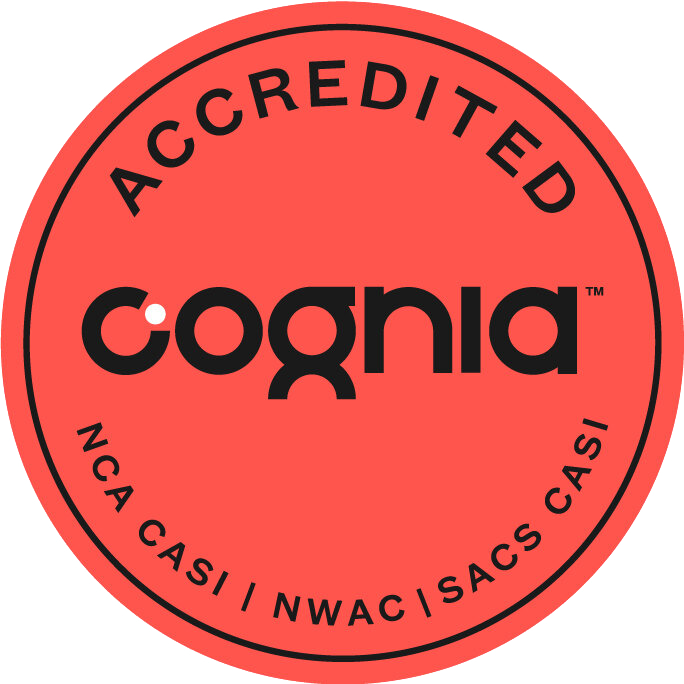
Looking for an accredited online homeschool program?
Schedule a call with us and find the best program for your child. Click here and start today!
FAQs
Yes, homeschooling is legal in most countries, although specific regulations may vary. It’s essential to familiarize yourself with your jurisdiction’s homeschooling laws and requirements.
Absolutely! At Ideal School, we understand that educational needs may evolve over time.
Whether you’re transitioning from online learning to homeschooling or vice versa, our team is here to support you every step of the way.
Contrary to popular belief, homeschoolers have ample opportunities for socialization through community events, co-op classes, extracurricular activities, and online platforms. Additionally, homeschooling fosters closer family bonds and allows for meaningful interactions with peers of various ages.
Yes, many parents successfully homeschool multiple children, leveraging strategies such as group instruction, independent study, and cooperative learning activities. With proper planning and organization, homeschooling can accommodate the needs of multiple learners within the same household.
Absolutely! There is a wealth of homeschooling resources available, including curriculum materials, online courses, support groups, and educational websites. Additionally, Ideal School offers comprehensive homeschooling support services to assist parents in navigating their homeschooling journey effectively.


